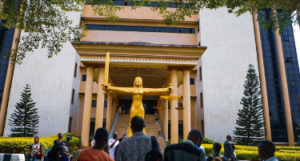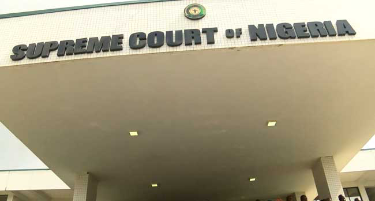In a significant legal development, the Supreme Court of Nigeria has mandated that the governors of all 36 states submit their defense in response to a lawsuit initiated by the Federal Government. This suit seeks to establish full autonomy for the 774 local governments across the country, a move that could dramatically reshape the governance structure at the grassroots level.
The directive from the Supreme Court came during a ruling by Justice Garba Lawal, who led a seven-member panel. This ruling followed an application for abridgment of time put forth by the Attorney General of the Federation (AGF), Lateef Fagbemi. The urgency of the case, coupled with the lack of opposition from the state Attorneys General, necessitated this expedited timeline. Justice Lawal emphasized the national importance of the suit, ordering the AGF to file his reply within two days of receiving the states’ defenses.
In a decisive move to ensure all procedural requirements are met promptly, the Supreme Court instructed that all filings and exchanges of documents be completed within the stipulated period. The court has scheduled a hearing for June 13, signaling the urgency and importance of resolving this matter expeditiously. Furthermore, Justice Lawal ordered fresh hearing notices to be served to the eight states whose Attorneys General were absent at Thursday’s proceedings. These states include Borno, Kano, Kogi, Niger, Ogun, Osun, Oyo, and Sokoto.
The Federal Government’s suit, represented by AGF Fagbemi, seeks sweeping changes aimed at reinforcing the constitutional mandate for local government autonomy. Central to the Federal Government’s argument is the request for the Supreme Court to prohibit state governors from unilaterally dissolving democratically elected local government councils. The Federal Government contends that such actions are arbitrary and unlawful, undermining the democratic framework established by the constitution.

One of the pivotal aspects of the lawsuit is the demand for local government funds to be directly disbursed from the federation account to the local governments themselves. This would bypass the currently practiced joint accounts managed by state governments, which the Federal Government argues are being misused. The lawsuit also seeks to end the practice of appointing caretaker committees to run local governments, a practice that the Federal Government claims contravenes the constitutional requirement for democratically elected local government systems.
The Federal Government’s submission includes 27 grounds supporting the suit. Among these, it asserts that Nigeria’s federation, as defined by the 1999 Constitution (as amended), recognizes federal, state, and local governments as distinct tiers of government. Each tier is entitled to funds from the federation account to ensure their proper functioning. The Federal Government argues that the constitution clearly mandates a democratically elected local government system, leaving no room for alternative governance structures at the local level.
Furthermore, the Federal Government highlights that the governors’ failure to establish elected local governments constitutes a deliberate subversion of the constitution. This ongoing neglect, it argues, undermines the rule of law and the democratic principles enshrined in the constitution. Efforts to compel compliance with the constitutional requirements have so far been unsuccessful, prompting this legal challenge.
The lawsuit also calls into question the practice of disbursing funds to states where no democratically elected local governments exist. The Federal Government posits that continuing to release these funds under such circumstances undermines the constitution and the principles of democratic governance. It argues that, in light of these constitutional violations, the Federal Government is not obligated to distribute funds to states that fail to uphold the requirement for elected local governments.
This legal battle at the Supreme Court could set a significant precedent for governance and the distribution of power within Nigeria. The outcome has the potential to reaffirm the autonomy of local governments, ensuring that they operate independently and in accordance with democratic principles. As the June 13 hearing approaches, all eyes will be on the Supreme Court to see how it navigates this crucial issue, which holds profound implications for the nation’s federal structure and democratic integrity.




